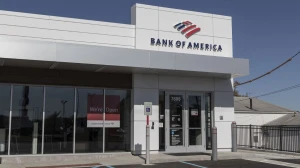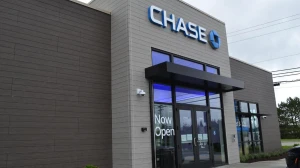
Retail Banks vs Credit Unions, What is the Difference Between Retail Banks and Credit Unions?
Retail banks are for-profit institutions with a broad customer base, offering varied services, while credit unions, as not-for-profit entities, prioritize specific regions or groups, providing community-focused, often higher-rate financial products.
by Sai V
Published Jul 28, 2023 | Updated Nov 29, 2023 | 📖 6 min read
Retail Banks Vs Credit Unions
Retail banks and credit unions differ in their structure, focus, and offerings. Retail banks are typically for-profit institutions with a broader customer base, serving customers in areas with physical branches or online-only platforms. They often offer a wide range of financial products but may have lower savings and CD rates compared to credit unions. In contrast, credit unions are not-for-profit entities that prioritize serving specific regions, employers, or common groups of individuals.
They tend to offer higher savings and CD rates, reflecting their commitment to benefit their members. While both retail banks and credit unions have branches and technology, the level of technological sophistication can vary, with larger institutions generally leading in this aspect. Ultimately, the choice between the two depends on your financial needs, location, and the importance of community-focused banking.
What is the Difference Between Retail Banks and Credit Unions?
In the financial landscape, choosing between retail banks and credit unions is a significant decision, and understanding their key differences is essential. The following table outlines the distinctions between these two types of financial institutions in terms of their customer base, savings and CD rates, branches, and technology.
|
Aspect |
Retail Banks |
Credit Unions |
|
Customer Base |
Generally serves a broad customer base within their branch areas, unless online-only. |
Primarily serves a specific region, employer, or common group (e.g., profession or organization). |
|
Savings and CD rates |
Typically lower than the national average. |
Generally above the national bank average. |
|
Branches |
Yes, though some online banks have few or none. |
Yes, though some credit unions are online-only. |
|
Technology |
Larger brick-and-mortar banks tend to have advanced technology. Smaller banks might not. |
Some larger credit unions have advanced technology, but smaller credit unions might not. |
What is Meant by Credit Union?
The term credit union refers to a unique type of financial institution that operates as a cooperative, where members collectively own and govern the institution. Unlike traditional banks, credit unions prioritize the interests of their members over generating profits for shareholders. They offer a range of standard banking services, such as savings and checking accounts, loans, and credit cards, but typically have a more limited product portfolio.
Credit unions are characterized by their not-for-profit status, meaning they are exempt from corporate income tax and can offer their members competitive interest rates and other financial benefits. While they may have fewer physical branches compared to large banks, they often foster a strong sense of community and member-focused service.
Discover a wealth of financial knowledge and services on MarketsHost, your one-stop destination for all Banking needs, whether you're interested in Credit Cards, Mortgages, or Loans.
What Are the Pros and Cons of Credit Unions?
Credit unions offer good rates and government protection, but they might be inconvenient for some due to limited branches. Online banks could outpace them in rates, and strict membership criteria may limit access for some individuals. Explore the pros and cons for a balanced view of credit unions.
Pros of Credit Unions
- Credit unions often offer better interest rates on savings and loans due to their not-for-profit structure, benefiting members with increased earnings and lower borrowing costs.
- Deposits in federally insured credit unions are protected by the U.S. government, ensuring your money's safety even if the credit union faces financial difficulties.
- Credit unions are community-focused, providing a more personalized banking experience and allowing members to support institutions aligned with their values and local communities.
Cons of Credit Unions
- Credit unions are typically local or regional, which can be inconvenient if you don't have a nearby branch for everyday banking needs.
- Online-only banks often outpace credit unions in offering competitive interest rates on savings accounts and CDs, potentially yielding greater returns.
- Credit unions may have strict membership criteria, such as residency or affiliations, restricting access for individuals who don't meet these requirements.
What is Meant by Retail Banking?
The term retail banking refers to a sector of banking dedicated to providing a wide range of financial services specifically tailored to individual consumers rather than businesses or large institutions. Retail banks focus on offering accessible and personalized solutions to help individuals manage their money effectively, including services such as savings and checking accounts, mortgages, personal loans, credit cards, and certificates of deposit.
In contrast to corporate banking, which caters exclusively to companies, retail banking centers on meeting the financial needs and goals of everyday people, making it a fundamental part of the financial landscape for the general public. Additionally, advancements in technology have enabled the expansion of retail banking services, with many fintech companies now offering similar services through digital platforms and mobile apps for added convenience.
What Are the Pros and Cons of Retail Banks?
Retail banks are like neighborhood banks where you can go in person. They're good because they have many branches and use modern tech. But, sometimes, they give less money back on savings and might ask for high account balances or charge fees.
Pros of Retail Banks
- Retail banks have widespread physical branches and ATMs, making it easy for customers to access services in person.
- They offer a variety of bank sizes and types, from major national banks to local institutions, catering to different needs.
- Retail banks invest in cutting-edge technology, offering mobile banking apps and digital services for convenience.
Cons of Retail Banks
- Many retail banks, especially large ones, often provide lower interest rates on savings accounts compared to other institutions.
- Some retail banks impose high balance requirements and maintenance fees on certain accounts, potentially affecting customers who can't meet these criteria.
Do Credit Unions Offer More Safety Than Banks?
Both banks and credit unions provide a high level of deposit safety through federal insurance, with both the Federal Deposit Insurance Corporation (FDIC) for banks and the National Credit Union Administration (NCUA) for credit unions offering coverage of up to $250,000 per account type per depositor. This means that if you have less than or equal to $250,000 in deposits at either type of financial institution, your funds are fully insured, and you are protected in case of financial instability at the institution.
To further safeguard larger sums, it's advisable to consider spreading your deposits among different institutions, a strategy known as deposit diversification, to ensure that all your funds remain within the federally insured limits.
Retail Banks vs Credit Unions - FAQs
1. What is the main difference between retail banks and credit unions?
Retail banks are typically for-profit institutions serving a broad customer base, while credit unions are not-for-profit entities serving specific regions or groups, often offering higher savings rates.
2. Are credit unions safer than banks?
Both banks and credit unions offer a high level of deposit safety with federal insurance, protecting funds up to $250,000 per account type per depositor.
3. Why do credit unions often offer better interest rates?
Credit unions' not-for-profit structure allows them to offer competitive interest rates on savings and loans, benefiting their members.
4. Do retail banks have an advantage in technology?
Larger retail banks typically have more advanced technology, while smaller banks may lag in technological sophistication.
5. What is the primary focus of retail banking?
Retail banking caters to individual consumers by offering a wide range of financial services, including savings and checking accounts, loans, and credit cards, with a focus on accessibility and personalization.




